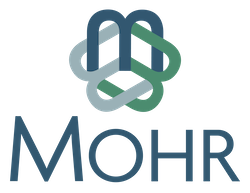
In a legislative session marked by difficult decisions and steep budget challenges, the MOHR Extended Employment (EE) Committee stood out as a shining example of thoughtful leadership, strategic action, and unwavering commitment to Minnesotans with disabilities and mental health challenges.
Minnesota’s Extended Employment Program plays a vital role in supporting people with significant disabilities or other barriers to employment. Through a statewide network of nationally accredited community rehabilitation providers, the program offers long-term job support, at no cost to participants or employers, to help individuals not only keep their jobs but also advance in their careers.
This year, the MOHR EE Committee went beyond advocacy for its own program. When they learned that the Individual Placement and Support (IPS) program, an evidence-based employment model for people with mental illness, was facing a devastating 75% funding cut, they took swift and unprecedented action. Recognizing the close relationship between the two programs and the importance of maintaining a continuum of support, the MOHR EE Committee voted to reallocate $2 million over the next two years to help sustain IPS services.
This decision reflects the committee’s understanding that many individuals begin their employment journey through IPS and later transition to EE for long-term support. The EE and IPS programs naturally complement one another, and the committee’s willingness to share financial resources helps to ensure that Minnesotans won’t fall through the cracks.
The impact of the IPS program is well documented: individuals served through IPS are three times more likely to find employment than those using traditional vocational programs. Employment through IPS has been shown to improve self-esteem, income, quality of life, and even reduce symptoms of mental illness. The EE Committee’s intervention helped preserve access to these life-changing supports without requiring new state funding - a creative, budget-neutral solution at a time when lawmakers were under immense fiscal pressure.
Beyond this remarkable collaboration, the MOHR EE Committee also prioritized legislative education this session. Committee members engaged directly with lawmakers, many of whom reached out themselves, to share the value and outcomes of the Extended Employment Program. Legislators were impressed by the data, especially the high return on investment: for every dollar invested, participants earn more than twice that amount in wages. But the program’s true value lies in its ability to help people at the moment they need it most: when they are ready to work and build a better life.
The MOHR EE Committee’s work this session reflects both integrity and innovation. They made bold choices in challenging circumstances, choosing collaboration over competition and placing people at the center of every decision. We’re proud to recognize and celebrate their exceptional leadership in protecting and strengthening Minnesota’s employment support system.
